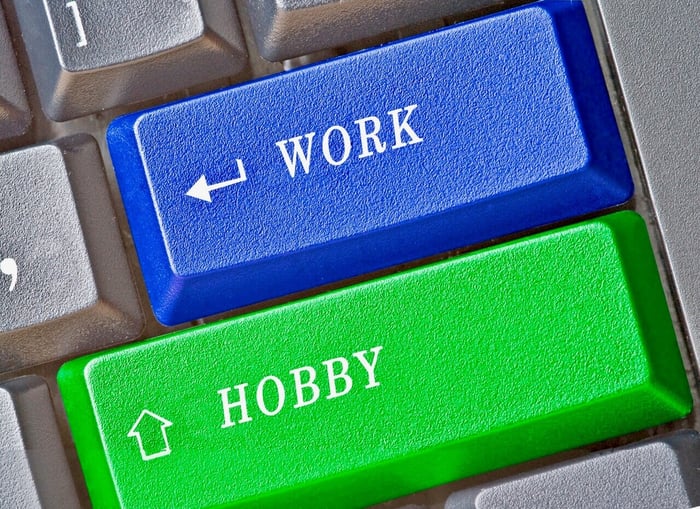Written by Adeline J. Wells
The other day, I was roaming around the internet and stumbled across an old tweet from Kashia Dunner, a career coach and former diplomat. On December 31, 2019, Dunner posted the following tweet:
“I feel like my generation lost hobbies.
Everything doesn’t have to be a hustle, side hustle, or money making enterprise. Sometimes it’s just fun to do something because it brings you joy, peace, relaxation, or allows you to be creative.”
Dunner’s tweet struck as a poignant, yet very true statement about our society. Her thoughts seem to describe people within the later Gen X and Millennial generations in particular; those who are navigating adulthood today.
As children, we were often encouraged to find new hobbies to occupy ourselves. In the days before smartphones and wireless internet, our parents wanted us to find other ways to spend our time. The genres ranged greatly; there were kids who played club sports, such as kickball, gymnastics, or karate. Others were interested in crafts such as origami, crochet, beading, scrapbooking, flower pressing, and magic. Some had different collections that they spent time learning to grow, such as coin, stamp, or seashell collections. During this time, I also remember my mother, a Baby Boomer, as always engaging in hobbies of her own. She was constantly playing solitaire, knitting, quilting, or reading. To this day she still does these things, and is often lamenting to my father that he needs to “find a new hobby.”
So what happened to our generation of adults? Why don’t people talk about the things that they enjoy doing for simple pleasures?
Younger Gen-Xers and Millennials grew into adulthood under different circumstances than our parents and grandparents before us. On the one hand, we have more people in the workforce than before; due to the social progression, more women are working and establishing careers for themselves. With more people chasing careers, less time is left to dedicate towards our simple hobbies.
However, we also are going through adulthood during a time of heightened financial distress; we barely came out of the 2008 market crash only to enter into a global pandemic, straining the economy once again. These global constraints on the economy in part birthed the rise of “hustle culture”, aided by the invention and expansion of social media.
That hat you knit me was great, you should sell those!
Do you like taking film photos? Those are cool, you could make money off of them!
You found a cool coin? That could be worth a lot of money, you should look it up on eBay!
We now live in a world where everything is commoditized, where everything can be turned into a hustle for a source of income. What has begun to happen is that because everything can be a hustle, we believe that everything has to be a hustle. Our generation has lost sight of even the possibility that we can do and enjoy things without trying to extract a profit from them.
The onset of the pandemic in 2020 and subsequent quarantine did spur the onset of hobbies for some. Via social media, we witnessed the world commit time to things such as puzzles, baking bread, and meditating. One study by LendingTree found that 6 in 10 Americans picked up a new hobby during quarantine, with 35 percent of those surveyed saying they did so to make money. 31% of those surveyed reported they picked up a hobby to better their mental health during that time.
Living in a capitalist society, making money will always be a main operative to do anything. However, Dunner’s tweet is important in opening the discussion surrounding the intention of how we spend our time, and for what purpose. Doing things to bring us joy, peace, and allow us to express our creativity are just as valuable as those that we do for financial gain. It is time for our society to honor and reflect that truth as well.


















